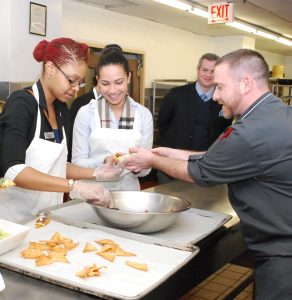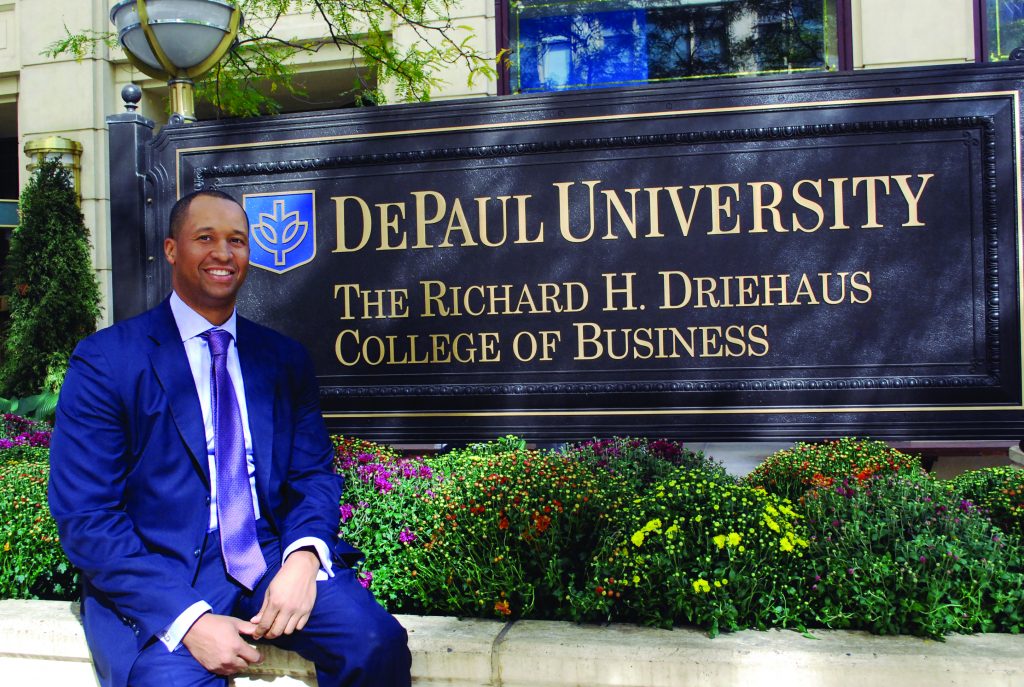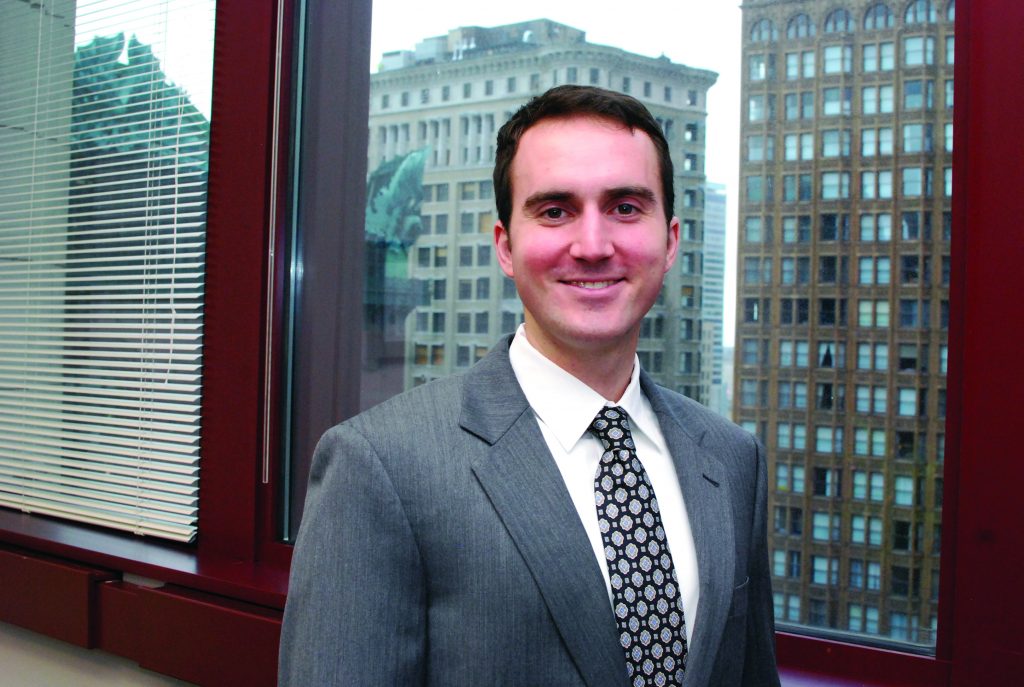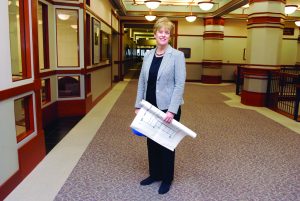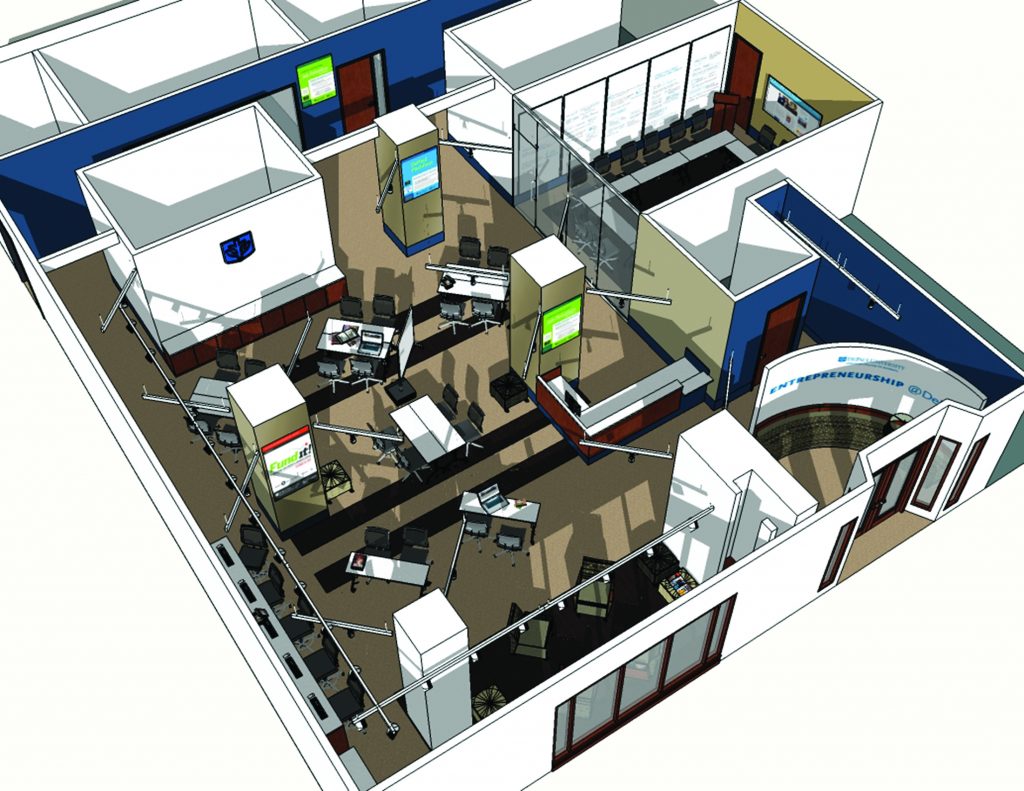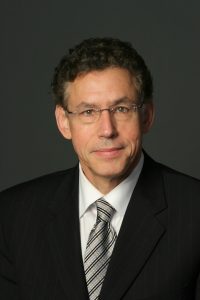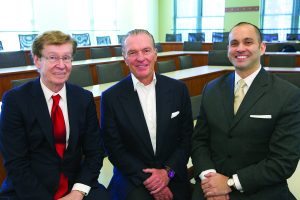Alumni Entrepreneurs
by Jennifer Leopoldt
Building any kind of business requires passion and hard work, but it also requires know-how and network connections. For more than three decades, the highly regarded entrepreneurship education program at DePaul’s Driehaus College of Business has been helping its graduates blend these ingredients together to achieve success.
“You just don’t fall into a successful business. It takes originality, insight, research, training and perseverance,” says Harold Welsch (BUS ’66, MBA ’68), founder and director of DePaul’s entrepreneurship program and the Coleman Foundation Chair in Entrepreneurship.
DePaul’s approach has received national recognition, most recently from The Princeton Review, which rated DePaul’s undergraduate program as 15th and the graduate program as 20th in this year’s ranking of the best colleges for entrepreneurs. In a field of 3,000 participating schools, that puts DePaul in the top 1–2 percent in the United States.
The college’s entrepreneurship program began in 1982, and Welsch says the discipline is even more popular today. “We teach our students to be constantly aware of new opportunities by applying their creativity and innovativeness to adapt to new markets,” says Welsch.
Entrepreneurship is about more than startups. As the following stories show, lessons alumni learn at DePaul can be applied to jobs as disparate as running a family business, founding a nonprofit and helping companies expand.
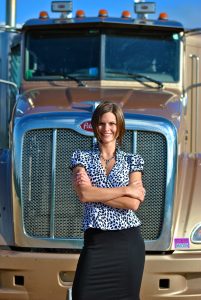 Bailey Glendenning, CEO of Glendenning Brothers Inc. (MBA ’14)
Bailey Glendenning, CEO of Glendenning Brothers Inc. (MBA ’14)
For Bailey Glendenning, DePaul offered a hands-on program and concepts she could immediately use at her family’s business.
“The fun thing about my position is I could learn it in class on Tuesday night and walk into work to apply it on Wednesday,” she says.
Glendenning Brothers Inc., a transportation company in Stillman Valley, Ill., has been in business for 35 years, “but I view it as an entrepreneurial venture,” Glendenning says. “We’re trying to re-create our business, make it better, innovate and change.”
While earning her degree, Glendenning became fascinated by entrepreneurship after taking a class with Professor Welsch.
My perspective changed. I began to view all small business, whether startups or long-standing companies, as an opportunity to be entrepreneurial,” she says.
At DePaul, Glendenning met James Stark (MBA ’12, JD ’12), her business partner with whom she operates various other ventures through the startup C&H Financial Services Inc. She says DePaul taught her the importance of connecting with others. “You find out very quickly that you can’t do it all on your own. There are so many opportunities for business relationships, but you will never know if you don’t branch out and talk to people,” she says. Although running the family business is her main job, Glendenning says she really enjoys “the game of startups, where you can be completely creative.”
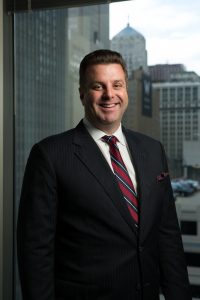 William R. Snow, Managing Director, Jordan, Knauff & Co. (BUS ’89, MBA ’94)
William R. Snow, Managing Director, Jordan, Knauff & Co. (BUS ’89, MBA ’94)
William Snow studied finance at DePaul and later earned an MBA In entrepreneurship. He credits his education with providing insights and experience that help him connect with businesses that come to his investment banking firm. “I understand the issues that owners face as they try to grow their businesses or craft an exit,” he says.
Snow describes the work at Jordan, Knauff as selling companies, raising capital for companies and advising on acquisitions. “My favorite aspects of the job are what many people dislike the most—negotiating and resolving conflict,” he says.
Snow also is a speaker and an author. In addition to writing numerous articles, an e-book he wrote in 2003, “Venture Capital 101,” found online acclaim and eventually ended up at Wiley Publishing Inc. The publisher then contacted him about writing “Mergers & Acquisitions for Dummies.”
“The lesson is to find something to offer,” Snow explains. “Stop asking and think instead about the person on the other side of the bargain. What do they get out of an interaction with you? Offering will open far more doors than asking.”
In addition, Snow advises entrepreneurs to “gain actual, real-world experience. Classes and studying are great, but you have to get out and experience business situations for yourself.”
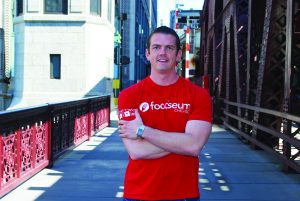 Kyle D. Joseph, Executive Director, Foodseum; Founder/CEO ShopGab (MBA ’12)
Kyle D. Joseph, Executive Director, Foodseum; Founder/CEO ShopGab (MBA ’12)
DePaul helped Kyle Joseph pivot from being an engineer to being an entrepreneur.
“I had a lot I wanted to create, and I wanted to make my ideas come to life,” he says. He calls DePaul’s program “an amazing experience that really transformed my career path and my life.”
Joseph’s first venture was ShopGab, which began as a social shopping platform that let consumers compare products. Now he’s relaunching it as a resource for personal shoppers and high-end boutiques, allowing professionals to manage and further engage customers.
His next project is Foodseum, a Chicago-based museum devoted to food and culture. “I’ve always had a love of exploring cultures through food, and I wanted to bring that experience to people,” Joseph says.
The museum will touch on the history, preparation and creative uses of different foods, with the first exhibit devoted to hotdogs and encased meats of the world. Until the museum has a permanent space, Joseph and his team are planning pop-up locations, starting in May 2015, when the prestigious James Beard Awards for food and beverage professionals come to Chicago. In the meantime, the team has established partnerships with more than 40 local and national organizations to help design the experience, build community awareness and raise the necessary funding for the Foodseum.
“It’s been exciting to be able to move at this incredibly accelerated pace, thanks to the network I formed through DePaul and ShopGab,” Joseph says.
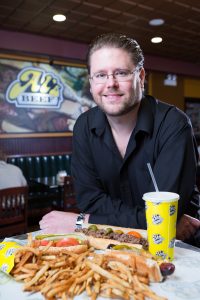 Michael Stadnicki, Co-Founder, Launch Franchise Development (BUS ’01, MBA ’11)
Michael Stadnicki, Co-Founder, Launch Franchise Development (BUS ’01, MBA ’11)
The entrepreneurial spirit has long characterized Michael Stadnicki’s work ethic.
While an undergraduate at DePaul, he won an international student business plan competition with his proposal for a wireless credit card payment system called ChargeAnywhere, which he later implemented in 750 Chicago taxicabs. After graduation, he worked at Francorp and Chicago Franchise Systems, the parent company of Al’s Italian Beef and Nancy’s Pizza. While developing the chains nationally, he returned to DePaul to further his goal of helping entrepreneurs develop through franchising.
“I’ve had the opportunity to work with all types of businesses—anything from a doggie daycare to restaurants overseas,” Stadnicki says.
Today he runs his own company, Launch Franchise Development, and operates a number of restaurants in Chicago, including the first U.S. location of the Big Cheese Poutinerie, a Canadian franchise that celebrates poutine, a traditional combination of French fries, fresh cheese curds and gravy. His company also works internationally and plans to open the first Middle East locations of Al’s Italian Beef and Nancy’s Pizza in Dubai in 2015.
Stadnicki, who was named the college’s Entrepreneur of the Year in 2010, urges other DePaul entrepreneurs to lean on the skills they learned in school and to adapt to change.
“Trust your instincts, trust the education that DePaul gave you, and follow your passion and your dream,” he says.
Read more about DePaul’s highly ranked entrepreneur programs.

